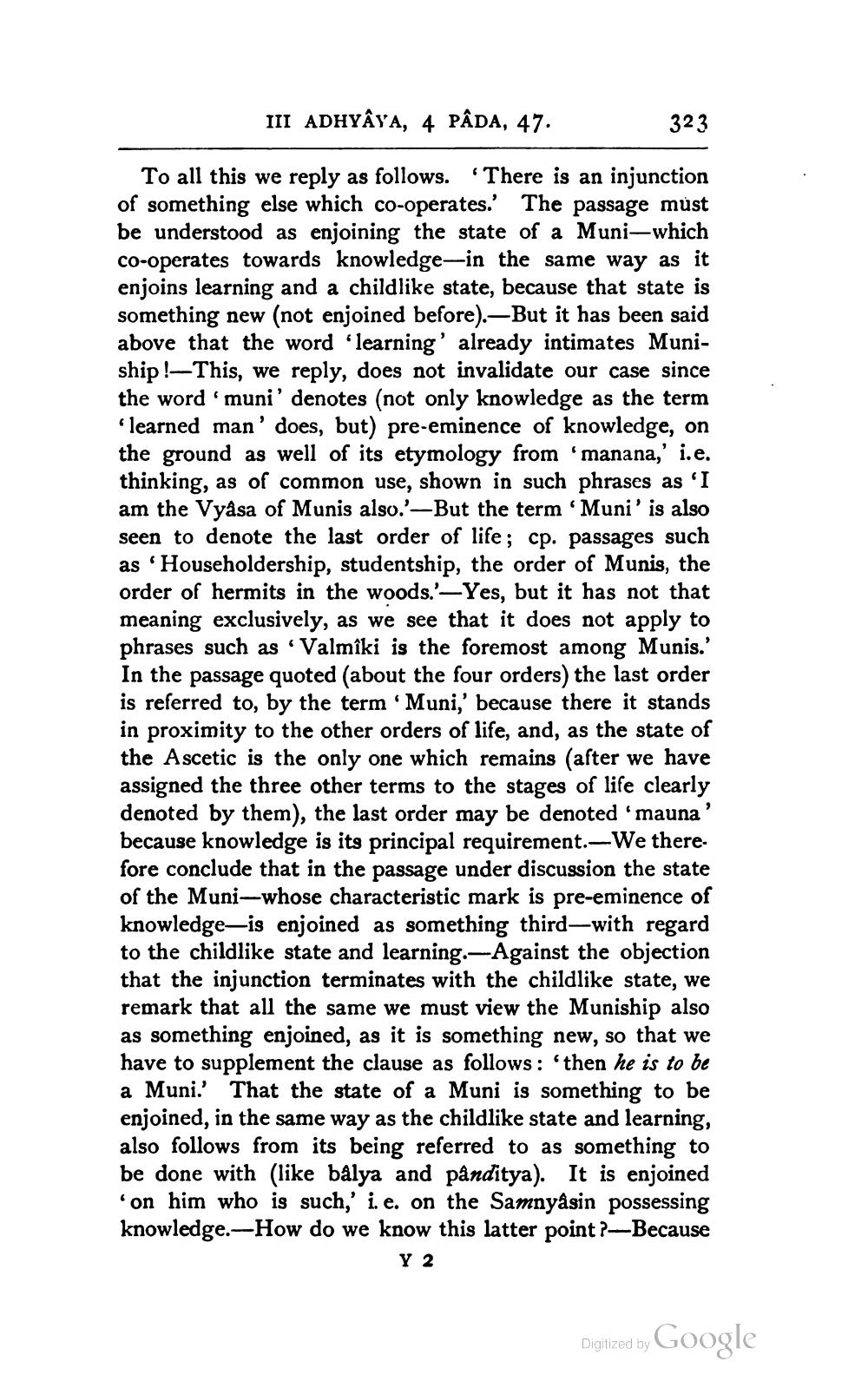________________
III ADHYAYA, 4 PÂDA, 47.
323
To all this we reply as follows. There is an injunction of something else which co-operates.' The passage must be understood as enjoining the state of a Muni—which co-operates towards knowledge—in the same way as it enjoins learning and a childlike state, because that state is something new (not enjoined before).—But it has been said above that the word 'learning' already intimates Muniship!—This, we reply, does not invalidate our case since the word 'muni' denotes (not only knowledge as the term
learned man' does, but) pre-eminence of knowledge, on the ground as well of its etymology from 'manana,' i.e. thinking, as of common use, shown in such phrases as 'I am the Vyasa of Munis also.'-But the term 'Muni' is also seen to denote the last order of life; cp. passages such as 'Householdership, studentship, the order of Munis, the order of hermits in the woods.'— Yes, but it has not that meaning exclusively, as we see that it does not apply to phrases such as Valmiki is the foremost among Munis.' In the passage quoted (about the four orders) the last order is referred to, by the term 'Muni,' because there it stands in proximity to the other orders of life, and, as the state of the Ascetic is the only one which remains (after we have assigned the three other terms to the stages of life clearly denoted by them), the last order may be denoted 'mauna' because knowledge is its principal requirement.-We there. fore conclude that in the passage under discussion the state of the Muni—whose characteristic mark is pre-eminence of knowledge-is enjoined as something third—with regard to the childlike state and learning.- Against the objection that the injunction terminates with the childlike state, we remark that all the same we must view the Muniship also as something enjoined, as it is something new, so that we have to supplement the clause as follows: then he is to be a Muni.' That the state of a Muni is something to be enjoined, in the same way as the childlike state and learning, also follows from its being referred to as something to be done with (like bålya and pânditya). It is enjoined 'on him who is such,' i. e. on the Samnyåsin possessing knowledge.--How do we know this latter point ?-Because
Y 2
Digitized by
Digilzed by Google




